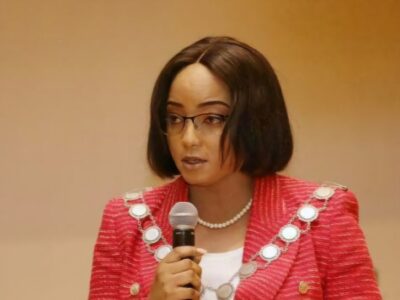The Cabinet has agreed to introduce a bill in Parliament to amend Zambia’s laws in line with government’s areas of concern.
Information and Media Minister, Cornelius Mweetwa, stated that the bill aimed to strengthen laws against discrimination based on ethnicity, race, religion, tribe, region, place of origin and color.
In a statement issued in Lusaka on Friday, Mweetwa explained that the bill would also make it illegal to steal medicines and medical supplies and to vandalize, steal, or illegally possess electricity installations essential for power supply.
Read More: Govt orders all public service vehicles to be parked by 18 hours everyday
One such law highlighted by Mweetwa is the Penal Code Section 70, Cap. 87 of the Laws of Zambia, which currently addresses the offense of expressing or showing hatred, ridicule, or contempt for persons because of race, tribe, place of origin, or color.
“However, Cabinet feels there is a need to strengthen the law to prevent actions that incite hatred, ridicule, and division in the country and to enhance the punishment for the offense of discrimination and sectarianism as a deterrent to potential offenders,” Mweetwa said.
Additionally, the minister stated that Cabinet approved the amendment of the Firearms Act, Cap. 110 of the Laws of Zambia, to include provisions that would strengthen firearms licensing and regulatory mechanisms.
The Act aims to prohibit certain categories of people from possessing firearms and to regulate the import, export, movement, storage, possession, sale, manufacture and repair of firearms and ammunition.
“This decision by Cabinet comes in light of the recent alarming rise in instances where firearms have been unlawfully discharged in public and private places, sometimes resulting in loss of life,” Mweetwa explained.
Furthermore, the minister mentioned that the Cabinet tabled the Police Public Complaints Commission Act No. 18 of 2016 for amendment to strengthen the Commission’s operations.
The current Act has been deemed inadequate in dealing with many issues related to the Commission’s operations.
“There is a need to amend the Act to include a clear definition of police action, provide for the enforcement of offenses, protect witnesses, allow the Commission to create rules, establish provincial structures, and enable the Commission to handle disciplinary actions directly rather than only making recommendations for punishment,” he said.
Mweetwa also pointed out that the Medicines and Allied Substances Act No. 3 of 2013 is inadequate for regulating medicines and allied substances, necessitating alignment with the African Union (AU) Model Law on Medical Products Regulation.
This alignment is crucial to protect the public from counterfeit and falsified medicines and allied substances.
“The Act needs to be aligned with the AU Model Law, endorsed by African Heads of State and Government at the AU Summit in January 2016, to address gaps and inconsistencies in regulatory legislation and enable harmonization and efficiency in the region,” he stated.
According to Mweetwa, Cabinet also approved repealing the Defence Act, Cap. 106 of the Laws of Zambia, establishing the Attorney-General’s Chambers headed by the Attorney-General in line with Article 177 of the Constitution, Cap. 1 of the Laws of Zambia and amending the Births and Deaths Registration Act, Cap. 51 of the Laws of Zambia, to align it with the Civil Registration and Vital Statistics Policy.
“During the meeting, Cabinet approved the issuance of a Statutory Instrument for the Electronic Communications and Transactions (General) Regulations, 2024. The regulations are key for the Government to provide a safe and effective environment for electronic transactions,” Mweetwa added.
He also mentioned that another statutory instrument approved by Cabinet for issuance was the Information and Communications Technologies (Radio Communication) Regulations, 2024.
“The regulations are essential for the country to establish a robust and effective regulatory framework for radio communication,” he stated.
WARNING! All rights reserved. This material, and other digital content on this website, may not be reproduced, published, broadcast, rewritten or redistributed in whole or in part without prior express permission from ZAMBIA MONITOR.













Comments